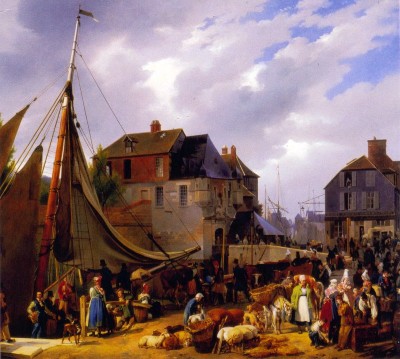Assignment 2
In assignment 1, I asked you to think about the large question surrounding the rise of the West: why was Western Europe the first place on earth to engage in sustained intensive economic growth? Prominent among the theories you encountered was a notion going back to Hume. Because of geography (and perhaps accidents of history as well) Europe after the fall of Rome developed as a set of independent states rather than as a unified empire. As a result, and unlike China, the Muslim world, and perhaps India, there was no unified government that could squash innovation. Because of a diversity of institutions and competition among states, Europe could experiment with and adopt technologies and institutions more rapidly than could other parts of the world.
At the same time, however, we discussed in class the many benefit of centralization. As nation states emerged in the early modern period, monarchs tried, often without great success, to reduce barriers to internal trade by unifying law, coinage, weights and measures and by reducing internal tolls. Unification of this sort, we noted, was an important feature of the Roman Empire, and indeed of the Muslim and Chinese empires. This suggests that there must be a tradeoff between centralization and decentralization.
Your assignment is to think about this tradeoff in the context of Europe in the early modern period. What is the nature of the tradeoff? Is "tradeoff" really the right idea? How did the tradeoff play itself out in Europe? Does thinking about a tradeoff shed additional light on the question you addressed in Assignment 1?
For readings, you should turn to the relevant sections of the syllabus. And, of course, I encourage you to find other references on your own. These may be of help:
Barry R. Weingast, "The Economic Role of Political Institutions: Market-Preserving Federalism and Economic Development," Journal of Law, Economics, & Organization 11(1): 1-31 (April 1995).
Douglass C North, John Joseph Wallis, and Barry R. Weingast, Violence and Social Orders. New York: Cambridge University Press, 2009. An earlier condensed version available as "A Conceptual Framework for Interpreting Recorded Human History," NBER Working Paper No. 12795, December 2006.
Due: November 9.
